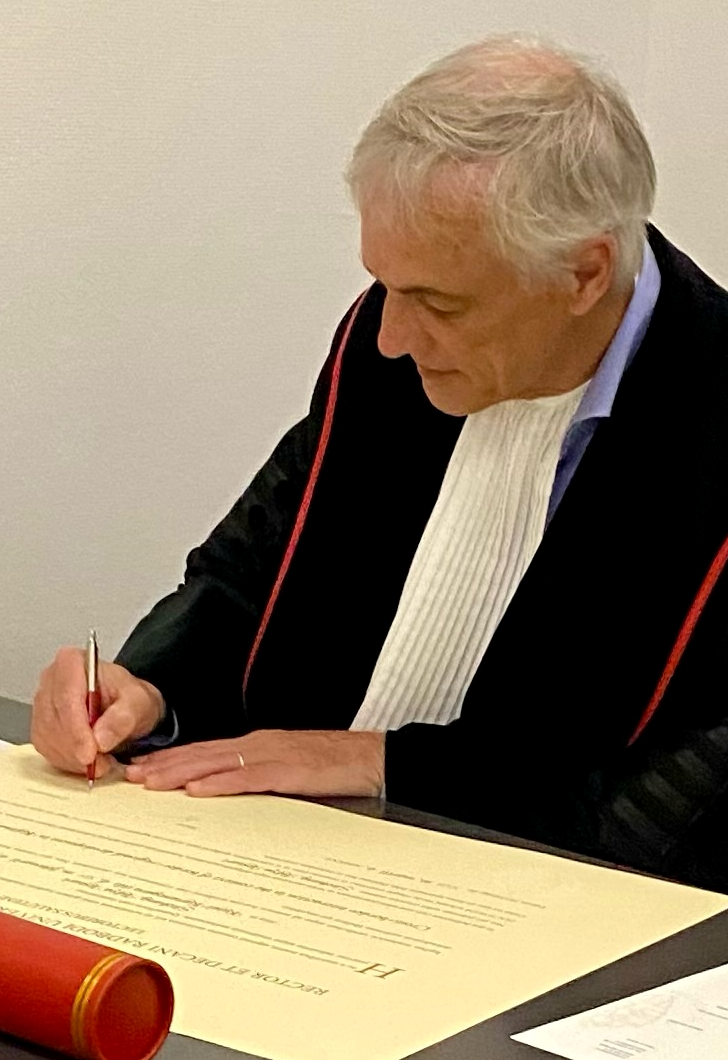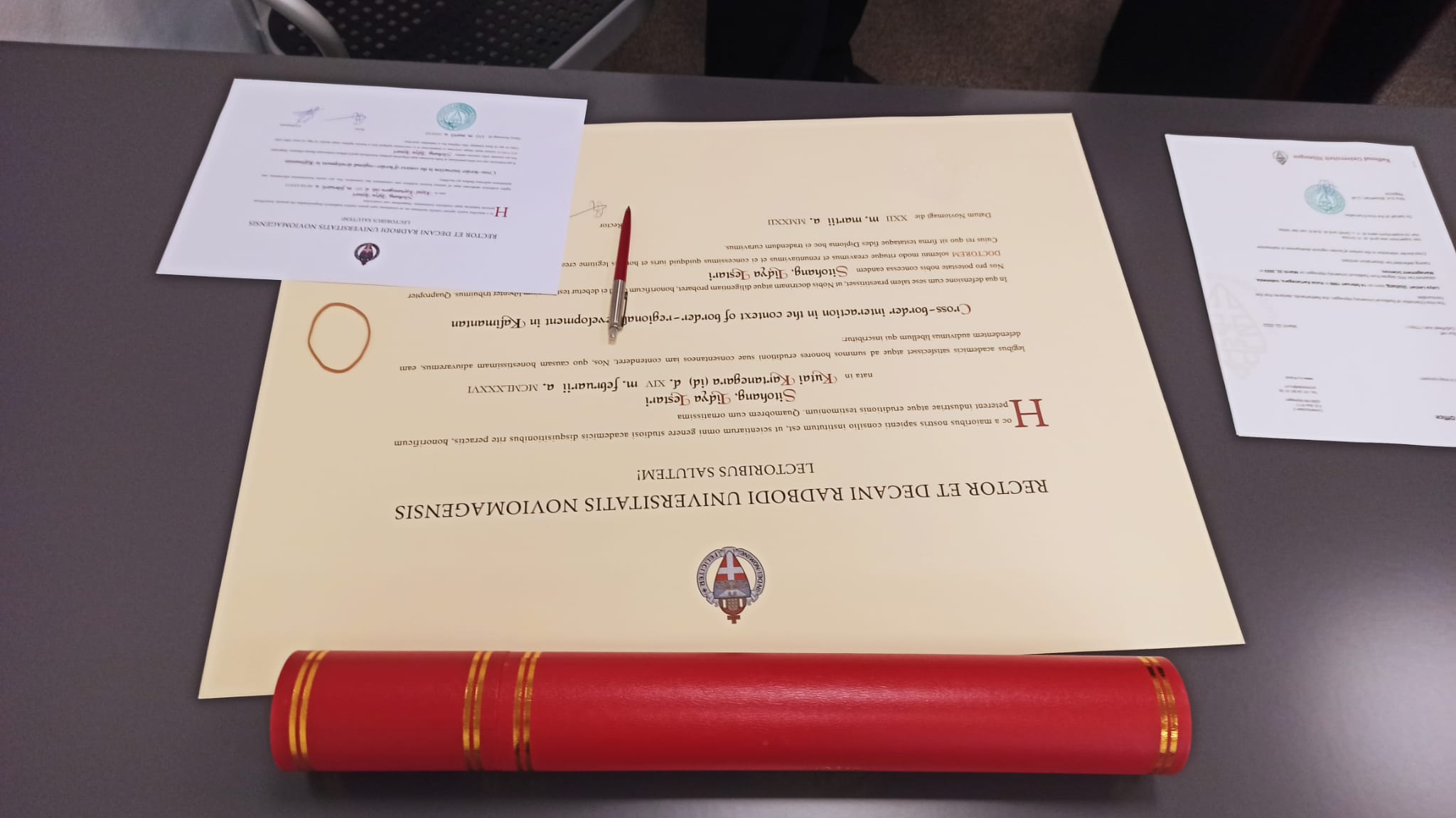Within one week two PhD candidates defended their PhD Thesis on topical issues related to Migration, Citizenship, Integration and ‘Homemaking’. On Friday, February 14 it was the turn of Iris Poelen.
 She successfully defended her PhD thesis ‘Home in Displacement. Syrian and Eritrean women’s negotiations of home in the Dutch nation-space’ in front of a panel of very renowned experts in this specific field consisting of Dr Rianne van Melik (Radboud University Nijmegen), Prof. Betty de Hart (Free University Amsterdam), Prof. Paolo Boccagni (Università di Trento, Italy), Dr Ilse van Liempt (University of Utrecht), Prof. Jan-Willem Duyvendak (University of Amsterdam). (click on picture to download full thesis)
She successfully defended her PhD thesis ‘Home in Displacement. Syrian and Eritrean women’s negotiations of home in the Dutch nation-space’ in front of a panel of very renowned experts in this specific field consisting of Dr Rianne van Melik (Radboud University Nijmegen), Prof. Betty de Hart (Free University Amsterdam), Prof. Paolo Boccagni (Università di Trento, Italy), Dr Ilse van Liempt (University of Utrecht), Prof. Jan-Willem Duyvendak (University of Amsterdam). (click on picture to download full thesis)
Her thesis was supervised by Prof. Huib Ernste and Dr Lothar Smith and Dr Jana Vyrastekova.
This very clear and well-written thesis centres on the stories of forty-five Syrian and Eritrean women who have been forcibly displaced. Having fled from different ordeals relating to war and persecution, these women arrived in the Netherlands during the refugee protection crisis of 2015. As they sought to (re)make home, they worked to (re)shape their social networks, (re)create their livelihoods and pursued other personal components important for feeling at home. However, Dutch research reports showed that women held a more vulnerable societal position than men and stressed a need for more research on Syrian and Eritrean women’s experiences in the Netherlands from their own perspectives.
Theoretically, the thesis builds on scholarship that has criticised ‘integration’ as a scientific- and policy paradigm, for the integration concept wrongfully frames groups of people as external to society (Schinkel, 2018). Scholars present ‘homemaking’ as a productive alternative lens that overcomes integration’s flaws but retains its merits (Boccagni & Hondagneu-Sotelo, 2023). Contrasting common notions of home as a fixed place, scholars of the ‘migration-home nexus’ (Boccagni, 2016) suggest that home can travel through time, space and scales and argue that home is best understood as a process. Homemaking furthers understanding of how people rearrange relations to prior sites of significance, while simultaneously negotiating home in present structures.
The thesis challenges the conventional understanding of displacement as an experience in which home is necessarily lost forever and underscores the relevance of multi-local and processual understandings of home. Syrian and Eritrean women who have been displaced, continuously (re)make home in the Netherlands. The thesis shows that supportive infrastructures for displaced persons could foster their comfort, by helping them (re)create roles and routines that sustain a sense of self, and by acknowledging that memories of past home places can be important for illuminating and transforming the present. However, the Dutch integration policies – with their fixed notion of home as rooted in the national territory – also further processes of ‘othering’ and protecting ‘our’ home, inflicting great discomfort on these ‘others’ seeking new homes after displacement.
 These migration-related policies may continue to affect ‘migrant’ women long after they have formally been accepted into the nation-space. Opposing the Dutch government’s aim to foster ‘migrant’ women’s ‘self-determination’, ‘a gendered politics of discomfort’ impedes these women’s pursuit of their needs and wishes in the Netherlands. Dutch immigration- and integration policies may lock women in ‘path dependencies’, reinforce their dependence on male partners, produce their ‘gender-specific guilt’, incite their ‘role-breakdown’ and inflict symbolic violence. Despite these challenges, women demonstrate their agency in (re)making home, albeit through different expressions. For younger women, the Dutch government offers important homemaking opportunities that allow them to give shape to their lives as they wish. Yet for women who already had established families and careers, but lost these important relations and roles in displacement, homemaking may instead involve a constant struggle for emplacement. The stories provided by a previously unheard group of Syrian and Eritrean women in the Netherlands illuminate how the dream of a national home can unsettle human lives.
These migration-related policies may continue to affect ‘migrant’ women long after they have formally been accepted into the nation-space. Opposing the Dutch government’s aim to foster ‘migrant’ women’s ‘self-determination’, ‘a gendered politics of discomfort’ impedes these women’s pursuit of their needs and wishes in the Netherlands. Dutch immigration- and integration policies may lock women in ‘path dependencies’, reinforce their dependence on male partners, produce their ‘gender-specific guilt’, incite their ‘role-breakdown’ and inflict symbolic violence. Despite these challenges, women demonstrate their agency in (re)making home, albeit through different expressions. For younger women, the Dutch government offers important homemaking opportunities that allow them to give shape to their lives as they wish. Yet for women who already had established families and careers, but lost these important relations and roles in displacement, homemaking may instead involve a constant struggle for emplacement. The stories provided by a previously unheard group of Syrian and Eritrean women in the Netherlands illuminate how the dream of a national home can unsettle human lives.
References
Boccagni, P. (2016) Migration and the search for home: Mapping domestic space in migrants’ everyday lives. Springer, New York.
Boccagni, P. & Hondagneu‐Sotelo, P. (2023) Integration and the struggle to turn space into “our” place: Homemaking as a way beyond the stalemate of assimilationism vs transnationalism. International Migration. 61(1), 154-167.
Schinkel, W. (2018) Against ‘immigrant integration’: for an end to neocolonial knowledge production. Comparative Migration Studies. 6(1), 31.














